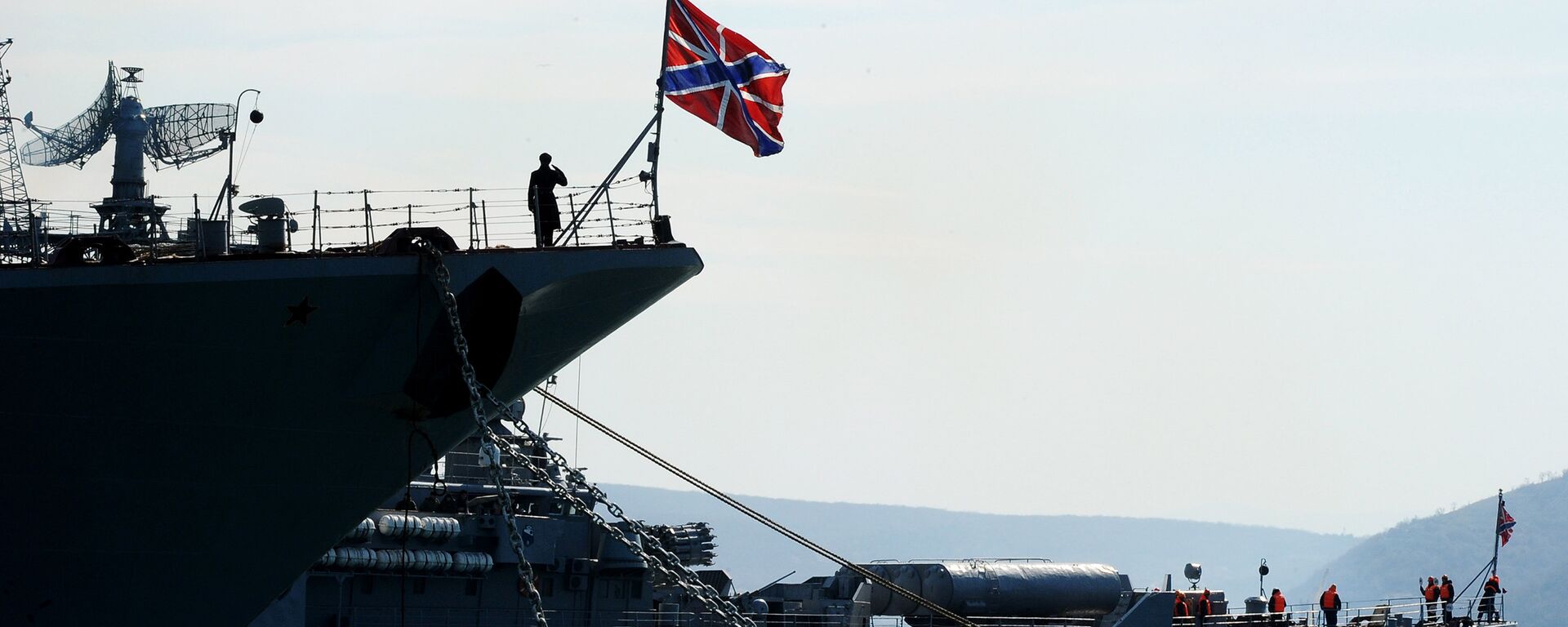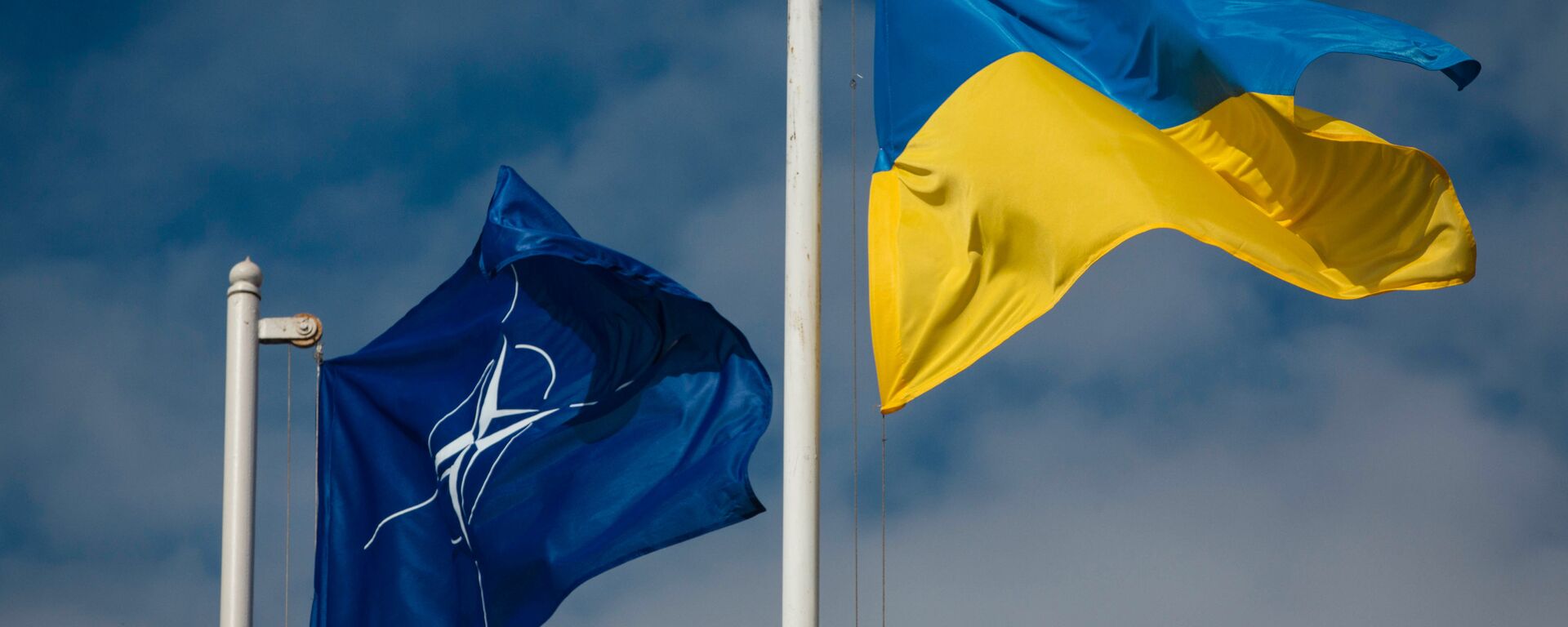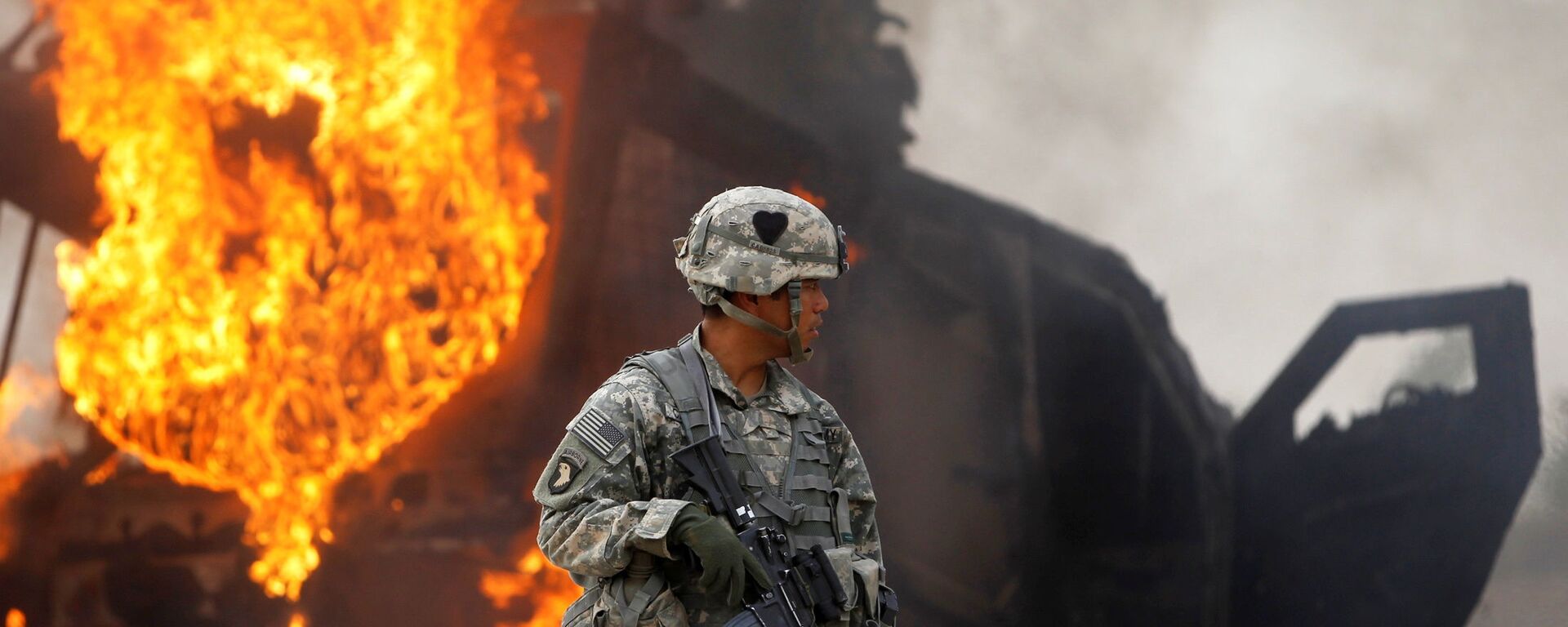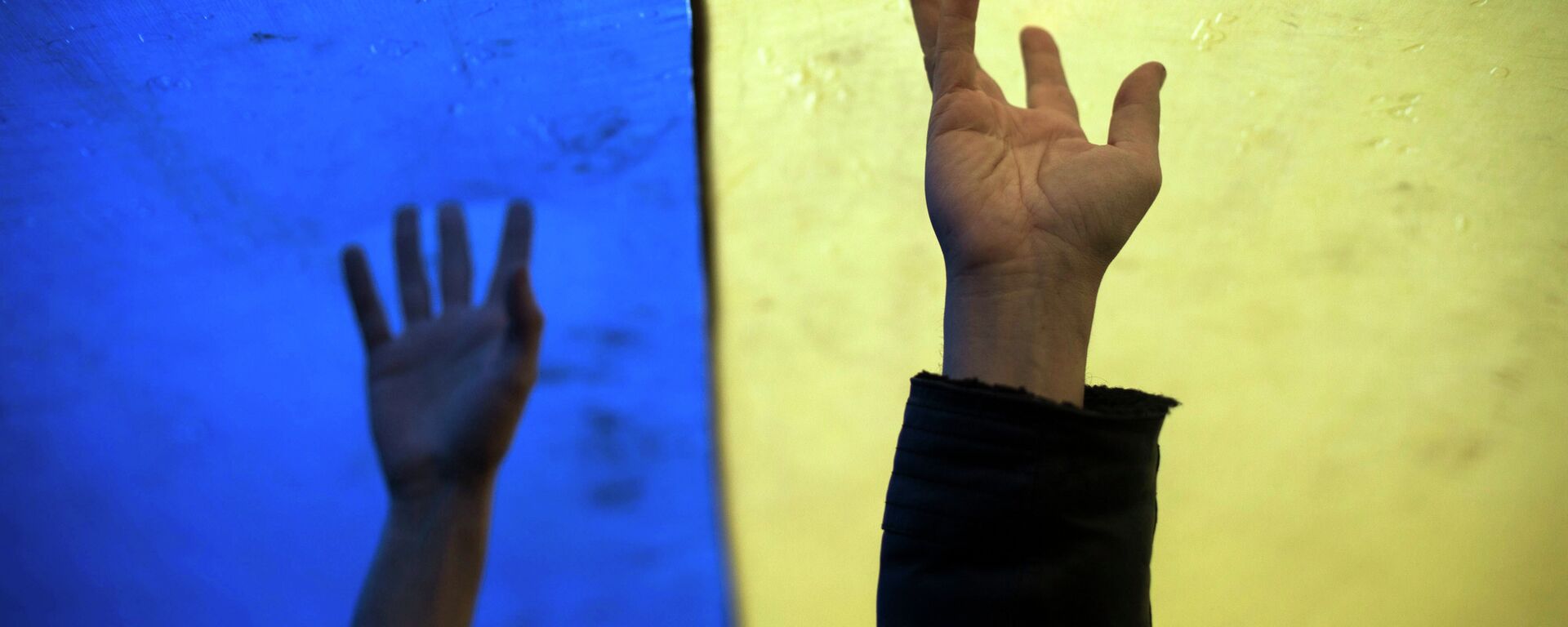Ex-UN Expert: US-NATO Narrative of 'Russian Invasion' of Ukraine Has Turned Into 'Religious Dogma'
05:41 GMT 24.01.2022 (Updated: 12:30 GMT 25.02.2024)
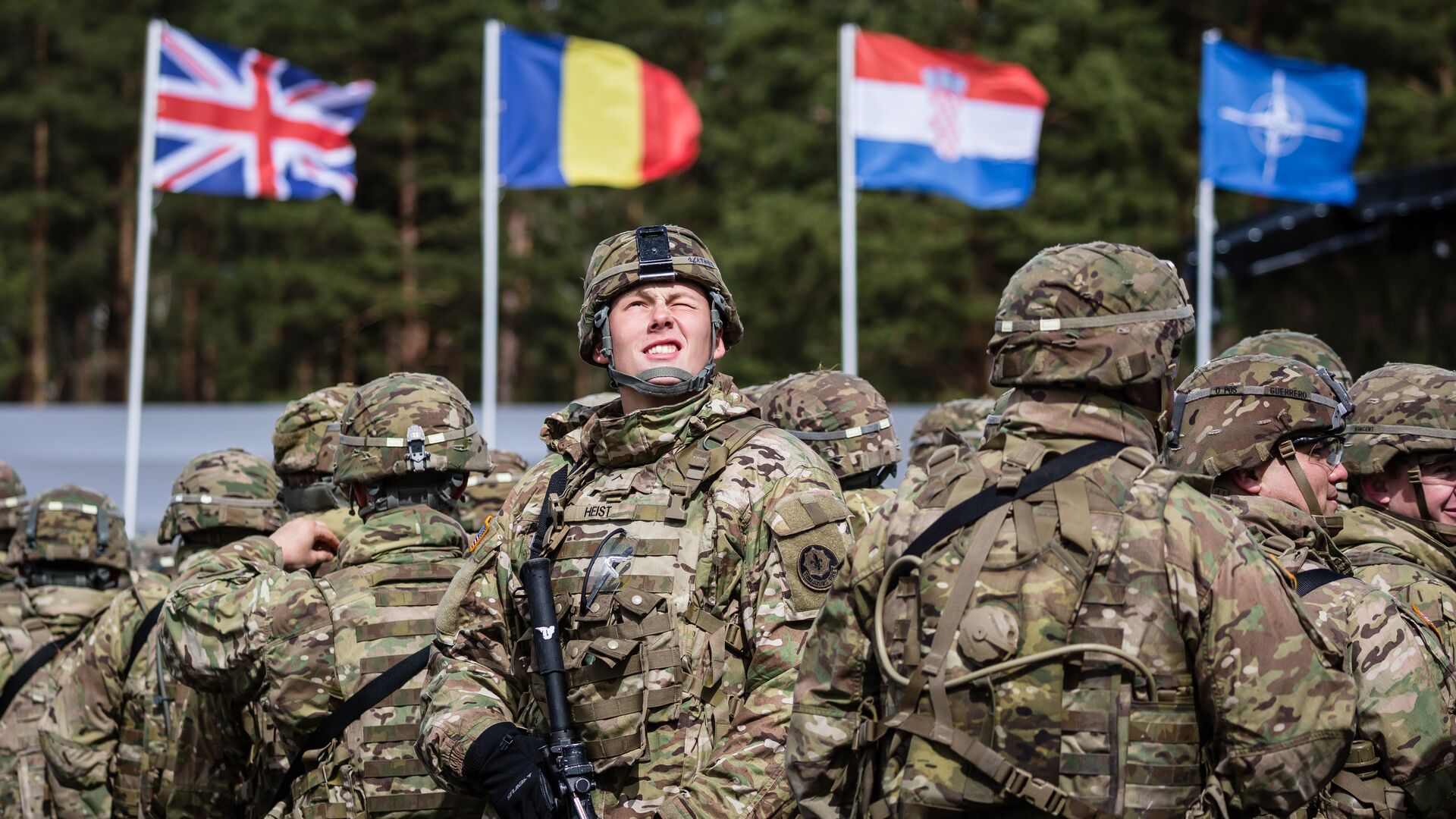
© AFP 2023 / Wojtek RADWANSKI
Subscribe
Retired UN Independent Expert on the Promotion of a Democratic and Equitable International Order Alfred-Maurice de Zayas has sat down with Sputnik to discuss an ongoing anti-Russian campaign in the US and the EU promoting an evidence-free narrative of Moscow's alleged plan to invade Ukraine.
American and European media and policy-makers are continuing to ramp up the narrative of Russia's alleged preparations for an "invasion" of Ukraine, despite Moscow repeatedly shredding the assumption as groundless and nonsensical.
At the same time, the mainstream press in the West was quick to denounce French President Emmanuel Macron's proposal for Europe to negotiate a security order with Russia as "badly timed" and "suggest[ing] cracks in Western unity". Kay-Achim Schönbach, a vice-admiral in the German Navy, who said that the idea that Russia wanted to invade Ukraine was nonsense, was immediately pressured into quitting.
Sputnik: The German naval chief was forced to resign over saying that he doesn't believe in Russia's "imminent invasion" of Ukraine; that Ukraine is not ready to join NATO; and that Crimea would never come back to Ukraine. What's behind this drastic backlash against a prominent military officer and Operation Enduring Freedom veteran for saying the obvious?
Alfred de Zayas: What Schönbach said was correct and necessary. Unfortunately he had to recant (like Galileo) – but that did not save him from having to resign. In Germany, there is a policy of "zero tolerance" when it comes to criticism of NATO.
In a way, the best way to understand German politics and NATO is to see the official narrative as a religion. NATO has emerged as a kind of secular religion, and if you disagree, if you do not obey, if you are a heretic, there will be a high price to pay. Taking NATO as a religion facilitates the task of indoctrinating the population – because in a religion you take the narrative on faith.
You believe because you have to believe. As the 3rd century philosopher Tertullian wrote "Credo quia absurdum" – "I believe because it is beyond my comprehension". I take the official narrative as existential dogma.
For many years now "cancel culture" has taken over Western societies, and there is a tremendous pressure to conform. Some Germans call this "Meinungsterror" – or intellectual terrorism. Some also complain about "Einheitsmeinung" – or the exclusivity of only one acceptable opinion, directly and indirectly imposed by the government, and enforced by the political correctness of your peers.
Germany is anything but a free society. Those who step out of line are punished. If you are a civil servant you will be disciplined or fired. If you frequent colleagues who are dissenters, you too will be ostracised. If you are a dissenter, you will be treated like a leper.
We are back to the days of the Inquisition – and another kind of "book burning" through fear and self-censorship.
Sputnik: Would you agree that Germany has fallen victim to the US-NATO Ukraine policies given the postponement of Nord Stream 2's certification and the looming energy crisis? Is the new German government strong enough to choose the nation's independence and prosperity over bellicose plans exerted on it by the US, the UK, and NATO leadership?
Alfred de Zayas: This was predictable. Trump/Pompeo and Biden/Blinken have been doing everything in their power to frustrate Nord Stream 2.
This illustrates the fact that in the eyes of my country, the United States of America, Germany is still that country that unconditionally surrendered in 1945. The United States continues to behave vis-a-vis Germany as the victor, as a colonial power, and German politicians have gone out of their way to be obedient subjects.
There is no political party in Germany that would dare claim independence from the United States. If they did so, they would promptly be labelled "extremist" and banned by the German Constitutional Court, which has already issued some remarkable judgments, which I would consider contra-legem.
Sputnik: The UK has claimed that Russia is plotting to install a "puppet government" in Ukraine. The story came on the heels of US claims that Russia is going to stage a false flag op on the Ukrainian border, and that Russian troops could invade Ukraine "at any moment". What's your take on these frenzied speculations – rubbished by the Kremlin as fake news – and ongoing hysteria in the European and US media? Do people buy into these stories?
Alfred de Zayas: The only war that NATO ever won was the information war. It is remarkable how comprehensive the propaganda and psychological war has been.
US and NATO propaganda has been far more effective and enduring than any of Goebbels' attempts at manipulation of public opinion. Noam Chomsky and others have again and again exposed the official lies and the efforts to "manufacture consent" through disinformation – to no avail.
With regard to the UK's claims, and in many other cases, I would like to ask, "where is the evidence?" Many are weary of evidence-free allegations from "anonymous" sources that rely on "secret" documents.
Gosh, haven't we learned from all the lies we were told during the Vietnam War, the fake Bay of Tonkin incident, the non-existent weapons of mass destruction in Iraq 2003, all the false flags in Afghanistan, Syria, and Libya? No, we haven't learned. Mundus vult decipi - the world seems to like being lied to.
It is breathtaking to see how the UK accuses Russia of plotting the overthrow of the Ukrainian government, when it was the US, UK, EU that in 2014 colluded in the coup d'état against Viktor Yanukovych, the democratically elected president of Ukraine. It is appropriate to recall that infamous recording of a telephone conversation between US Assistant Secretary of State Victoria Nuland (she is back in the Biden administration, in the same position) with Ambassador Pyatt in Kiev.
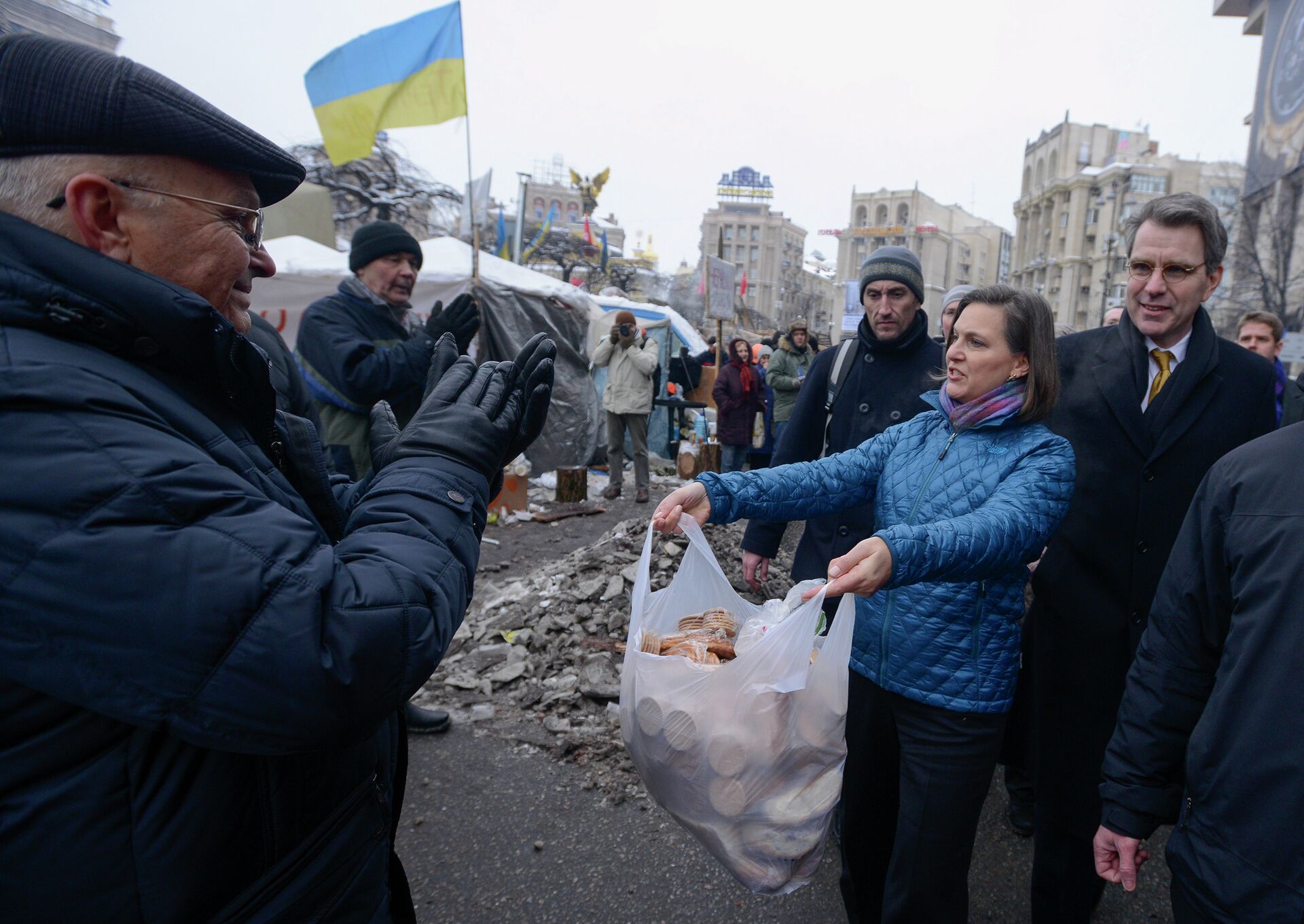
U.S. Assistant Secretary for European and Eurasian Affairs Victoria Nuland and Ambassador to Ukraine Geoffrey Pyatt, offering cookies and (behind the scenes) political advice to Ukraine's Maidan activists and their leaders.
© AP Photo / Andrew Kravchenko, Pool
Sputnik: Will the US-UK-NATO anti-Russia campaign succeed or will it awaken Europe given French President Emmanuel Macron's recent calls for a "frank" dialogue and security negotiations with Russia?
Alfred de Zayas: I am no friend of Emmanuel Macron. But he does possess a certain French arrogance that might help him compete well with the US, UK, and NATO hubris.
I think it is high time for the Europeans to look at their economic and political priorities. Certainly Europe's energy needs can be reliably met by Nord Stream 2.

27 December 2021, 14:21 GMT
[Russian President] Vladimir Putin has not threatened anybody, not provoked anybody. In the past he has not abused his leverage. But NATO wants to justify its existence. And if it wants to survive, it must invent an enemy. That is the role that has been assigned to Russia – an aggressive, dangerous bear from whom all of Europe must be defended. It is time to move away from this obsolete NATO mindset. It is not only sclerotic, it is dangerous to continue the provocations against Russia and China. We are adults and know that in a nuclear world errors can occur, and a miscalculation could lead all of us to the apocalypse.
I would like to see the United Nations take a more proactive role in mediating between Russia and the United States. Indeed, that is the raison d'être of the United Nations – to promote peace through multilateralism. But for negotiations to advance we need good faith – bona fide – which seems to be in very short supply in the US and NATO.

